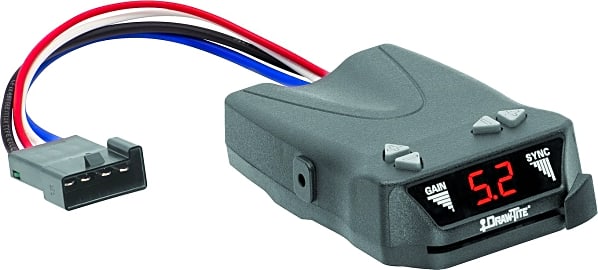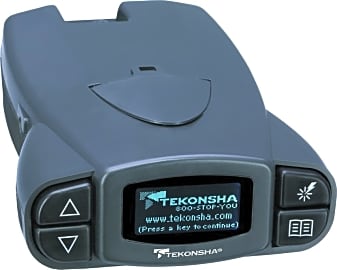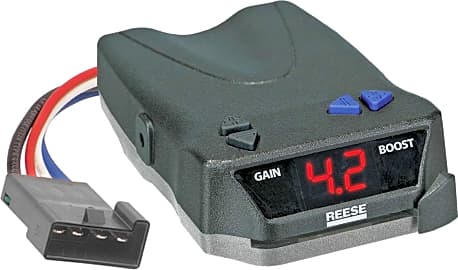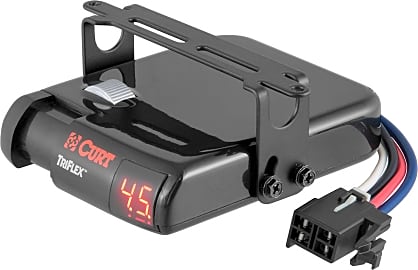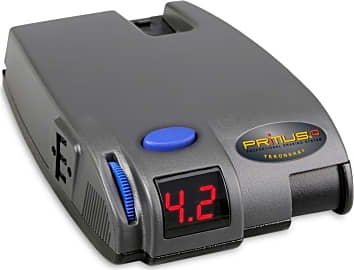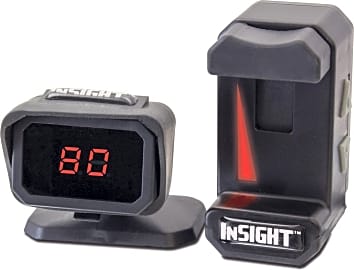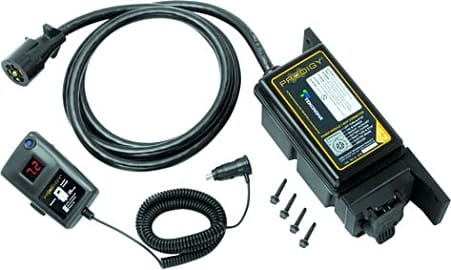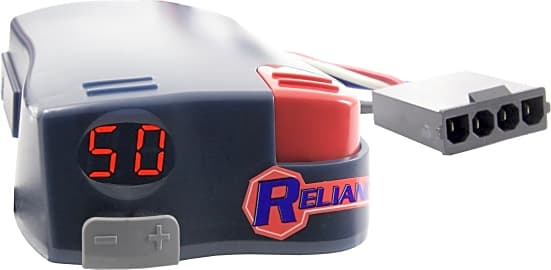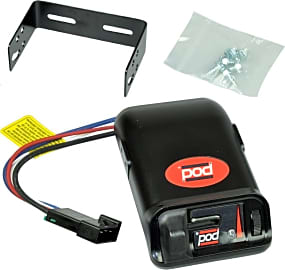The 10 Best Electronic Brake Controls

This wiki has been updated 37 times since it was first published in October of 2016. If you're planning on towing a trailer with a significant weight, it's highly recommended that you add one of these electronic brake controllers to your vehicle to ensure safe and controlled stopping. They are available in a wide range of models to suit most needs, and are adjustable to give you a safe experience. Always check your local and state regulations for specific requirements. When users buy our independently chosen editorial choices, we may earn commissions to help fund the Wiki.
Editor's Notes
November 13, 2019:
Added the Reese Towpower 8508211 - it is a very affordable model with proportional response but it need not be level. Generally speaking, the proportional response models are better than the timed control models because timed control outputs the same amount of stopping power that is set on the readout. Proportional control models will output different amounts depending on how hard your tow vehicle is braking, thus matching the intensity and resulting in uniform braking. This decreases stopping distance, its much safer, and it decreases wear on your braking system.
Brake control regulation changes from state to state. Always check your local codes to see if your trailer's weight requires you to use a brake controller while towing.
Towing With Control And Safety In Mind
However, an integrated sync switch gives the truck driver the ability to specify how long this delay should last.
If you own a large truck and tow heavy trailers on the road, then you're probably aware of the significant loads involved with such a task. Inertia will keep your vehicle and its trailer cargo in motion until an outside force acts upon them to slow them down. Anything in motion also has kinetic energy due to its overall mass and speed. The faster an object goes and the heavier it becomes, the greater its kinetic energy will be and the more power it will take to counteract its forward momentum. As such, a trailer's deceleration must be coordinated with that of its tow vehicle to prevent an accident or jackknife. This type of problem can be solved using an electronic brake control system to slow the trailer down once the tow vehicle's brakes have been applied.
Electronic brake controllers are aftermarket devices mounted to the dashboard of a truck's driver's side and equipped with large, easy-to-read LCD screens showing the amount of electrical current flowing to a trailer. A brake controller's main function is to engage a trailer's electric brakes and allow it to stop safely in conjunction with its tow vehicle. This means the controller acts as the signal source through which an electric current flows. That current flows through a series of high-capacity electromagnets within the trailer's braking system. The amount of pressure applied to the trailer's brake drums is directly proportional to the degree of current flow from the controller. The fundamental difference between the controller and a truck's braking system is in the controller's use of electromagnetic forces to slow the trailer down, as opposed to a tow vehicle's use of hydraulic pressure for its own deceleration.
Controllers fall into both proportional and time delayed categories. Proportional brake controllers make use of a pendulum acting as a motion detector to sense how fast the tow vehicle is stopping. As soon as the brakes are applied to the tow vehicle, the proportional controller sends an equivalent amount of electrical power to the trailer's brakes, which allows both the vehicle and trailer to decelerate at the same time.
By contrast, time-delayed controllers can be set by the driver before a road trip and send a pre-determined amount of power to a trailer's brakes. The amount of power distributed is dependent on the weight of the cargo being pulled. A slight delay will occur from the moment a tow vehicle's brakes are applied to the time when the trailer begins to slow down. However, an integrated sync switch gives the truck driver the ability to specify how long this delay should last. Because time delayed controllers don't depend on motion sensors to operate, they can be installed at virtually any angle.
Securing Your Trailer
The type of cargo you tow and the frequency at which you do so will dictate the most logical choice for a brake controller. For heavy loads that may include livestock or construction materials, a proportional, inertia-based system can be a great asset because it allows for smooth stops and minimal stress on your towing vehicle. Some of the best proportional controllers store settings for multiple drivers and trailer types. For example, if a truck is being shared among many workers, a single device can accommodate different job types or help compensate for erratic driving patterns.
One should also consider a unit equipped with boost controls for varying levels of brake adjustments as well as a solution with built-in diagnostic capabilities and warning signals to detect potential problems before they become a danger on the road. Some controllers even have customizable displays in different languages, which can be helpful with a diverse group of employees who need to make use of the same truck when traveling to and from job sites.
If you're on a tight budget, you don't want to waste additional time installing or calibrating the device, and you plan to tow small or relatively light loads, then a time-delayed controller may be your unit of choice. They are relatively easy to install and provide the driver with a high degree of control over the amount of power used to match the weight of a trailer.
The Journey Of The Electronic Brake Controller
The electronic brake controller has its humble beginnings as early as 1964 when a man named Jim Melluish started a metal tool and stamping business in Detroit, Michigan. In his search for a less expensive facility, Melluish relocated his company to the small town of Tekonsha where he saw the growing popularity for outdoor recreation of the sixties as an opportunity to manufacture parts for recreational vehicles. His RV parts business became known as Tekonsha Engineering, which is still one of the major leaders in intelligent trailer braking systems today. Tekonsha helped to revolutionize the towing industry in the mid-1960s by developing hydraulic controls allowing trailers to brake slightly before the brakes of a car.
Tekonsha helped to revolutionize the towing industry in the mid-1960s by developing hydraulic controls allowing trailers to brake slightly before the brakes of a car.
By the 1970s, Tekonsha released its first trailer-mounted electronic brake control known as Weathertronic. The company's innovation continued well into the 1980s and 1990s with its release of the proportional brake control products Commander and Voyager, both of which made use of smaller and more effective sensor technology. In 1993, the company developed its AccuTrac line of inertia-sensitive controls designed to sense the stopping motion of a vehicle.
As an answer to the increasing complexity of tow vehicles in the 21st century, Tekonsha developed its Prodigy proportional brake control system in 2001, while simultaneously forming a partnership with the Ford Motor Company. By December 2006, Tekonsha added its most advanced P3 line of aftermarket proportional brake control technology still in use today. It includes trailer type presets, multi-language instructions, and comprehensive diagnostics to ensure superior safety on the road.


